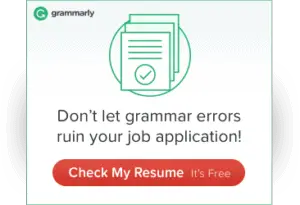Got an IELTS test coming up soon? Need some quick tricks and hacks to improve your band score quickly and easily? Good, because I hate IELTS, I don’t like how they make so much money from failing candidates, and I want you to beat them! Here are a some quick tricks and hacks for IELTS that work:
Understand how to sound like a native speaker quickly. Know what questions you are going to get in the speaking test before you even get to the test centre! Know how examiners will try and trick you in the listening section and, master different accents easily,
Also you should discover the one hack to ensure listening success, learn special idioms that you can use in every IELTS speaking test. learn a cool group of phrasal verbs that nail speaking part 1 and 3, and master the one key hack to getting through the reading test quickly.
Many sites insist that you cannot trick, or hack the IELTS test, well, I’m here to tell you that you can. How do I know?
Well, as a former IELTS speaking examiner I know exactly what candidates can do to hack their score, and by that I mean do a few key things to force the examiner to give you higher band scores than what you would otherwise get. If you are interested, and you should be, then keep on reading this article or check out my full course here.
Oh, and I should mention that most other web-sites probably won’t tell you these things because they usually want to either sell you their own ‘special course’, or they are a site owned by one of the owners of IELTS such as The British Council, IDP, or Cambridge English, and honestly those guys absolutely do not want you to know these tricks and hacks because they are responsible for making a test that can’t be hacked! And guess what? We are going to hack it – Boom!
Fast Track To A Band 7+ With My Proven Course!
Hack #1: Use idioms in the speaking section
The IELTS speaking band descriptors say that this is a characteristic of a band 7/8/9 candidate. Many IELTS teachers and web-sites say that candidates should not try to deliberately use idioms when they speak mainly because candidates do not know what topic you are going to be asked about so how would you know what idioms to learn? Plus inserting them deliberately can sound unnatural.
Well, the answer is simple. Even though you do not know what topics are going to be covered, you do know what types of questions you are going to be asked and you can learn some simple idioms that sound perfectly natural to drop into your conversion.
I am going to give you 6 idioms that I can almost guarantee you could use in every IELTS speaking test. I would recommend just dropping in 2 or 3 though, just to keep it natural sounding.
Speaking Part 1 idiom example sentences and idioms:
In my free time, I like to take it easy and just hang out with my friends. (you see that is not difficult to say is it!)
I am a bit of a bookworm really so I read most nights. (even if you are not a book worm it’s another easy idiom to use)
I hit the books most weekends (again, do you think you could say that without messing it up? I think you could).
I’m a bit of a couch potato, I like to just chill at home and watch Netflix, or something like that (seriously, you can use these idioms no problem).
Speaking Part 3 idiom example sentences
I’m going to sit on the fence on this one, because… (say this when you are not sure whether you agree or disagree with the examiner)
I would have to take issue with that, I don’t think that…(say this when you don’t agree with what the examiner has said)
Well, as a rule of thumb, people should … (say this when you want to give some advice/say what people should do)
There are truck loads (idiom meaning lots of something) of idioms that you could use but if you can just remember two or three of those it would not be hard to use them on test day.
I mean how hard would it be to say I like to ‘hang out with my friends’ in the exam. So long as the question is relevant it is a real ‘no brainer’ (idiom meaning an easy decision to make) to use these idioms. Don’t let other ‘IELTS experts’ convince you otherwise, I have confidence that you can do it!
Hack #2: Use these easy phrasal verbs to sound natural
In part 1 of the speaking test you are often asked about where you live, your hometown, hobbies and daily return. Native speakers use phrasal verbs all of the time with these topics and this is a great opportunity for you to show that you can use phrasal verbs. My full course covers this in more detail.
They are really easy. Here are a few sentences showing you how to use them. You only need to master these few phrasal verbs and you will sound more natural to the examiner.
I grew up in Bangkok but now I live in Chiang Mai.
I was brought up in Shanghai.
I took up badminton was I was about 6 years old but I gave up when I was 14.
I get up at 6 am and I hit the sack (idiom) at 10pm.
I picked up English mainly from my father who travels a lot.
I picked up the drums from my sister who plays in a band.
Every week I look forward to playing football.
Of course, their are loads more, but if you can just ‘get your head around’ (idiom meaning to understand) these few and practice the sentences and make them relevant to you then you are going to sound more native like to the examiner.
Fast Track To A Band 7+ With My Proven Course!
Hack #3: Chunk your words together with ‘sound linking’ to sound more natural
It actually says in the IELTS marking criteria that this is something you must do for a band 7+. So, what does it mean to use sound linking, or ‘speak in chunks’, as it says in the descriptors.
Well, it means that when you say a sentence you do not always pause between words. This means that your words will blend into one chunk of sound.
The times you can do this are when the end of one word is a consonant and the start of the next word is a vowel. At these times, the words can slide into each other. Try saying these sentences and do not pause between where the letters are bolded.
I grewupin Bangkok but nowI livein Chiang Mai.
I was broughtupin Shanghai.
I tookup badminton whenI wasabout 6 yearsold butI gaveup whenI was 14.
I getupat 6am andI hit the sackat 10pm.
As you can hopefully see, the phrase ‘grewupin’ can all be said as though it were one word, or chunk of information. This is pretty easy to do. Try recording yourself and listen to see if you are doing this. If you are not, then it is a pretty easy skill to pick up now you have been told about it.
Hack #4: Know what questions you are going to be asked in the speaking test
This sounds impossible but it’s actually pretty easy when you know the IELTS system. You see, IELTS speaking examiners are given a booklet with questions in that they have to choose at random to ask the candidates.
These booklets are used for 4 months at a time and as you know many candidates post the questions they were asked online for others to learn from. Therefore, if you schedule your test for near the end of one of these four month blocks then you will have been able to research and see most of the questions you will be asked.
Of course, you can’t guarantee you will be asked the same questions but there’s a good chance some of them will appear. The block ends at the end of January, May and September, Therefore these would be good times to take the test since many of the questions will have been shared online already.
Hack #5 – Know how IELTS will try to trick you in the listening test
The Listening test is actually quite predictable in the way that the test will try to trick you. I say ‘trick’ but I guess I should say ‘test’ your English listening skills. If you just watch out for these top 5 tricks then you will be able to improve your score pretty quickly:
- Plurals, IELTS know students struggle to hear the letter ‘s’ so always watch out for plurals.
- Giving the answer and changing it. This happens all the time in speaking parts 1 and 2, e.g. ‘Let’s meet at 3.30 pm, oh I’ve got a meeting then, how about 4.00 pm.’ It’s amazing how many people simply write down the first answer, 3.30 pm, not because they can’t understand the sentence but because they stop listening and start writing when they think they have got the answer.
- Don’t try to understand everything, you don’t need to. IELTS give you lots of extra information that is not useful just to see if they can catch you out. Instead of trying to understand everything just try and pick out the relevant information and don’t keep thinking about the words you don’t understand – that will not help you. If you really can’t figure out an answer, just leave it and move on, or make a note of a guess, comeback later and fill it in once you have had a minute to think about it.
- Forget about your spelling, yes, that’s right! Just write down what you think the answer is and keep listening and writing the next answer. You can check the spelling at the end when you transfer your answers – don’t waste listening time in the test thinking about spellings.
- Drink some coffee, 30 minutes is a long time to listen to your second language so do yourself a favour and drink some coffee before the test. Studies show it can help you focus!
Hack #6: Listen and write only
I read and hear so many ‘so called’ IELTS teachers on YouTube tell their students to listen carefully to every word and be careful with their spelling and make sure your answer makes sense etc…, but actually this advice is misleading.
The truth is you are only going to hear the test once, you cannot turn back the recording, or pause the recording to give you a bit more time to check an answer, check a spelling, consider whether a word/answer ‘makes sense’ or not, you simply have to ‘go with your gut’, which means to trust your instinct.
To be honest, your instinct is usually more accurate than your ‘thinking mind’ because English is so complex when you try to break it down and work an answer out it is often not what the grammar rules say it should be anyway.
Instead, simply listen and write, don’t think about it, just go with your gut and write down an answer. Of course, you can comeback and check spelling when you are transferring answers at the end.
Fast Track To A Band 7+ With My Proven Course!
Hack #7 – Listen to different accents on the way to the test centre!
So, you have prepared well for the exam, done lots of practice tests and you feel confident that you will do well, until the listening recording starts, and guess what?
The first speaker you hear has a really weird sounding voice that is hard to understand. Suddenly, all the confidence, disappears from your body, and you start to panic as you realise that you are starting to miss answers, because you just can’t catch (understand) what the speaker is saying.
So, to prevent this from happening to you in the run up to the test and especially on the morning of the test, make sure you listen to speakers of English from places other than the UK.
Practice watching or listening to television programmes/podcasts/radio stations from these countries in particular: America, Canada, Australia and New Zealand. These are the accents you really need to be able to understand easily. And also, listening to these on the way to the test centre will warm your ears up but may well mean the actual speakers in the listening test are easier to understand than those you were listening to on the way to the test centre. Hopefully, this will fill you with relief and confidence.
Here are a few places you can listen to those accents mentioned above:
Australian podcasts and accents here.
USA accent via CNN Learning English channel
New Zealand accent news podcasts
Hack #8: Don’t ‘read’ the reading test
Again this is a bit counter-intuitive, i.e. opposite to what you would think is good advice but is actually another great hack. The trick is to not read the texts you are given in the normal way you would read a book.
The hack is to only read the certain parts of the text that you think have the answers in them, slowly and carefully. Reading the entire text carefully would take too long!
Instead, here is what to do:
First, skim through the text and give each paragraph a brief label saying what it is about. Next, read the questions carefully underlining keywords and maybe noting any synonyms you can think of, for words in the question (this will help you to match the question to the answer in a moment), after that skim and scan back through the text using your labels for each paragraph to help locate where the answer to each question is.
Then, and only then, do you slow down and read those sentences slower for detailed understanding and you can hopefully answer the question correctly.
You should also underline the sentence that you think contains the answer so that if you have time at the end you can go back and check your answers. My full course contains step by step guides for how to do every question type!
Hack #9: The speaking examiner is being tested too!
I know you are going to feel nervous going into the IELTS speaking exam. Often candidates are nervous about what the examiner is thinking of them. Should they smile at them, should they call them sir, should they try to be funny and make them like you?
Here is my message to you, as a former IELTS speaking examiner, quit that type of thinking. The examiner has zero power over you. You would be better off thinking of them as a brick wall!
You would not be nervous about talking to a brick wall would you? No of course not. You see, examiners are brick walls because basically they just sit there and have to do the same thing for hours upon hours.
I remember doing 25 speaking tests back to back without a break in between. I was like a zombie, fake smiling, listening, asking ‘why?’, a million times.
What I am saying is that the IELTS speaking examiners are humans, they have no super powers, they are not special people. So, just get on and speak, say what you have got to say.
I would actually say that you shouldn’t care what the examiners think of you, just go and speak your mind (idiom meaning say what you think directly, even if it is a boring or strange opinion – nobody cares!).
You should absolutely not feel worried about the examiners, remember the interviews are being recorded to check the examiners are doing their job properly and not just so that you are being recorded.
Seriously, the interview recordings are checked at random by the IELTS masters somewhere and they go through and check the examiners are grading you correctly, asking the right questions, giving you long enough to prepare, following the script correctly.
And guess what, the examiners that don’t do those things correctly get sacked (idiom meaning to lose your job), so I hope this shows you that you are not the only one being judged, they are too! So, don’t think they are some special person, they are not, just relax and speak your mind!
Hack #10: Beat IELTS at their own game!
By now you probably realise that doing well at IELTS is as much about exam technique as it is actually being good at English. So, use this knowledge to your advantage, find out which specific IELTS skills and question types you are not good at, find your weakest areas and fix those.
This is really easy to do, especially if you don’t mind investing a bit of a money in a service that will tell you this exact information AND how to fix your issues.
Honestly, it makes more sense to spend a small amount of money finding out about fixing your exam technique for specific question types than it does to spend hundreds of dollars on repeating the test and remember you get zero feedback about why you failed to get the band score you needed.
So, my advice is to simply play the IELTS game, nail your exam technique, get the band score you need and then move on with your life to more interesting things!
Fast Track To A Band 7+ With My Proven Course!
OK, guys, I hope these IELTS trick, tips and hacks help you to achieve the band score that you need. Never forget the real reason why you are doing the test.
One thing that helped me when I was preparing for exams was to think about where I wanted to be in 5 years time. For me it was being a qualified UK teacher in a private school, and I made it!
For you it might be graduating from the university of your choice, in the country of your dreams, or taking up the career path that you have also wanted. Use those thoughts as motivation to continue to prepare and get yourself ready for your next test.
You might also be interested in my band 7+ IELTS course here
Good luck and happy hacking!
Recommended IELTS Study Tools
Thank you for reading this article. I always get lots of questions about how else to get a better band score quickly. So, this is what I recommend:
Complete IELTS Course: Of course, my full course ‘INCREASE YOUR IELTS‘ covers everything you need to need to know to pass IELTS, including practice questions, model answers, grammar work, strategies for every possible reading, writing and listening question type, as well as a complete speaking course too, check it out here.
IELTS Essay and Speaking Feedback: To complete full mock tests and get feedback from IELTS examiners on your IELTS essays or speaking tasks then visit: IELTS Feedback and Mock Tests, here.
Improve your grammar fast by using the Grammarly suggestions to improve your writing. Every IELTS students should have this free grammar improving tool.
Improve all-round English skill with EnglishClass101.com. If you have failed IELTS more than once then you probably need to improve your general level of English. Use the free online lessons and vocabulary building tools here and start improving today! HIGHLY RECOMMENDED!






